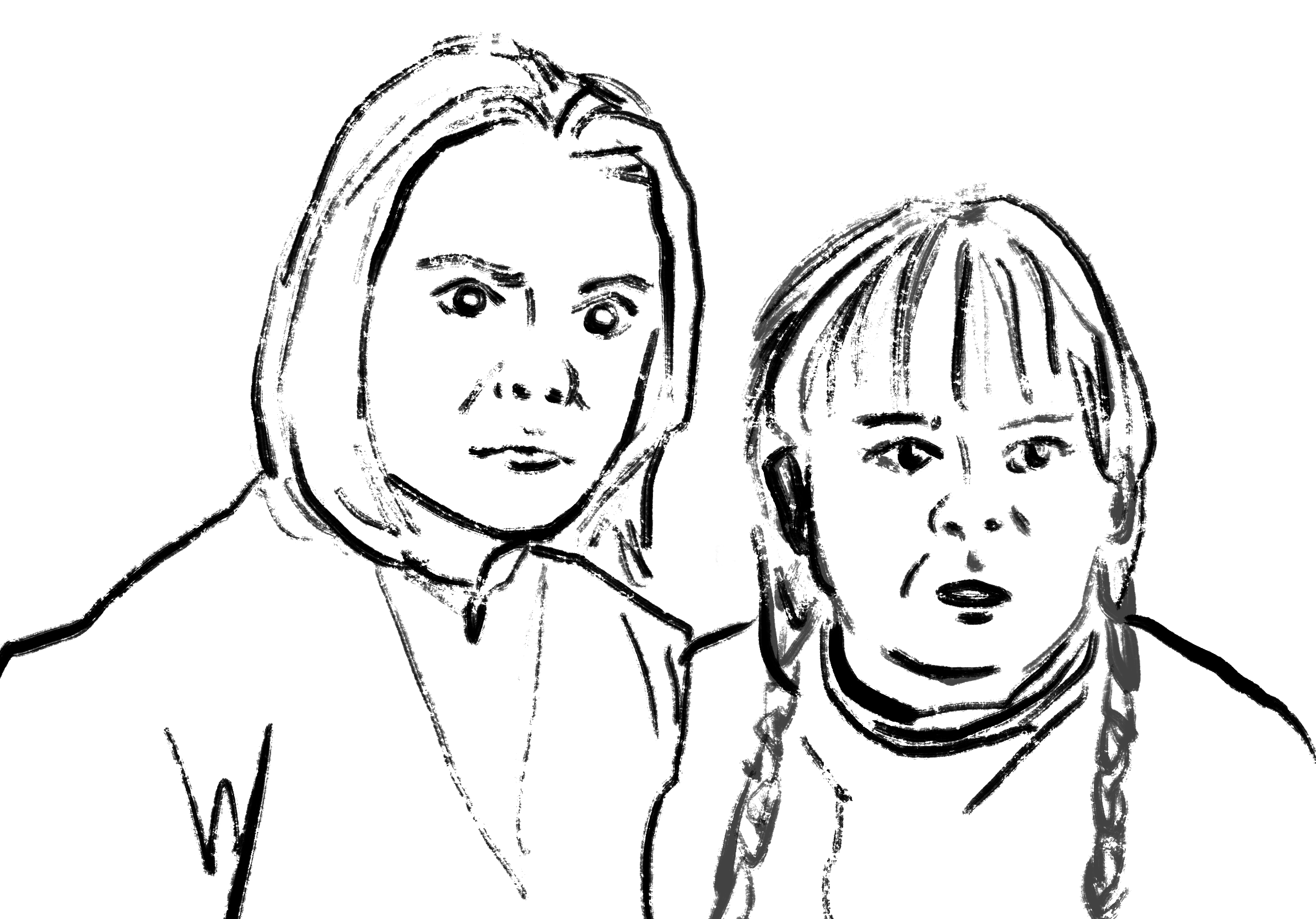Final Derry Girls season brings laughs, lacks focus
November 11, 2022
 Kyra Tan
Kyra TanThis review contains spoilers for Derry Girls season 3.
Derry Girls is an Irish comedy that follows 16-year-old Erin Quinn and her group of friends as they grow up against the backdrop of The Troubles in 1990s Northern Ireland. The show’s third and final season finally came to American Netflix in October 2022 following its Ireland and UK release earlier this year.
Season 3 maintained the show’s familiar saccharine tone and punchy jokes, but landed in the trap that many TV shows fall into during their final season—losing direction. Although writer Lisa McGee wrote on Twitter that the show was always meant to end after three seasons, it was hard to believe her statement while the stakes began to rise for every character in the show with little room for resolution over the course of just one season.
This is not to say that season 3 was unenjoyable by any means. The girls grew together as we witnessed new adventures and tender moments between them. The adults were also fleshed out beyond their archetypes. Erin’s mom decides to enroll in university (hilariously “stealing Erin’s thunder” as the first person in their family to go to uni), Sister Michael stands up to the bishop and keeps her job at Our Lady Immaculate and we learn that Michelle’s mother also has a cousin who lived with her in high school that everyone ignores.
There is also more political messaging this season, and the show’s self-awareness means that it does not feel overly trite. The writers call out the inaccessibility of academic language through “The Agreement,” a convoluted (and very real) pamphlet that everyone must read to decide which way to vote. The importance of voting is also stressed this season, and with a worldwide audience, that message is just as important now as it was 30 years ago when the show takes place.
Despite the positives, it is clear that the writers tried to pack too much story into just one season. Clare’s dad dies at the end of the penultimate episode only for the finale to skip forward one year in time. The audience has only seen Clare’s dad once before, and by also glossing over her grief, it feels like a cheap tug at our heartstrings without doing the heavy lifting.
In similar fashion, we find out only in the last episode of the show that Michelle’s brother Niall was a member of a paramilitary group and has been imprisoned for murder for the past three years. Part of voting yes on “The Agreement” means releasing all paramilitary prisoners as long as they agree to cease-fire. She grapples with this moral dilemma through the rest of the episode as she loves her brother but also knows that he has killed an innocent man. This arc is all too relevant to the show, but it again feels shoe-horned in. Michelle confronts Erin about her reaction to hearing Niall’s name pointing out that she has the same negative reaction every time he is brought up. However, we have rarely if ever heard him mentioned before and have certainly never seen them talk about him—perhaps the finale would have more punch if we had.
Season 3 of Derry Girls lost some of its footing and became less sure of itself, even as its protagonists solidified their identities and their places in the world. Individual episodes were enjoyable and didn’t lose their emotional resonance, but we never got to dig past the surface for many of the characters this season.
At the same time, this is a coming-of-age show. Experiencing so many big life events for the first time while lacking the perspective to actually reflect on these experiences epitomizes what it means to be in high school. Likewise, this is a nostalgic series about growing up, something that we as college students are arguably still doing. Episode 5, a flashback to 1977 when the girls’ parents were in high school, ends with a dedication, “For the Mammies,” for the parents who are watching this show and remembering the carefreeness that they, like the parents in the show, no longer have the privilege of enjoying.
The Derry Girls are finally coming of age and if there is one consistent point the writers are trying to drive home for the younger generation, it is to savor this time while we can.

Comments
Before submitting a comment, please review our comment policy. Some key points from the policy: